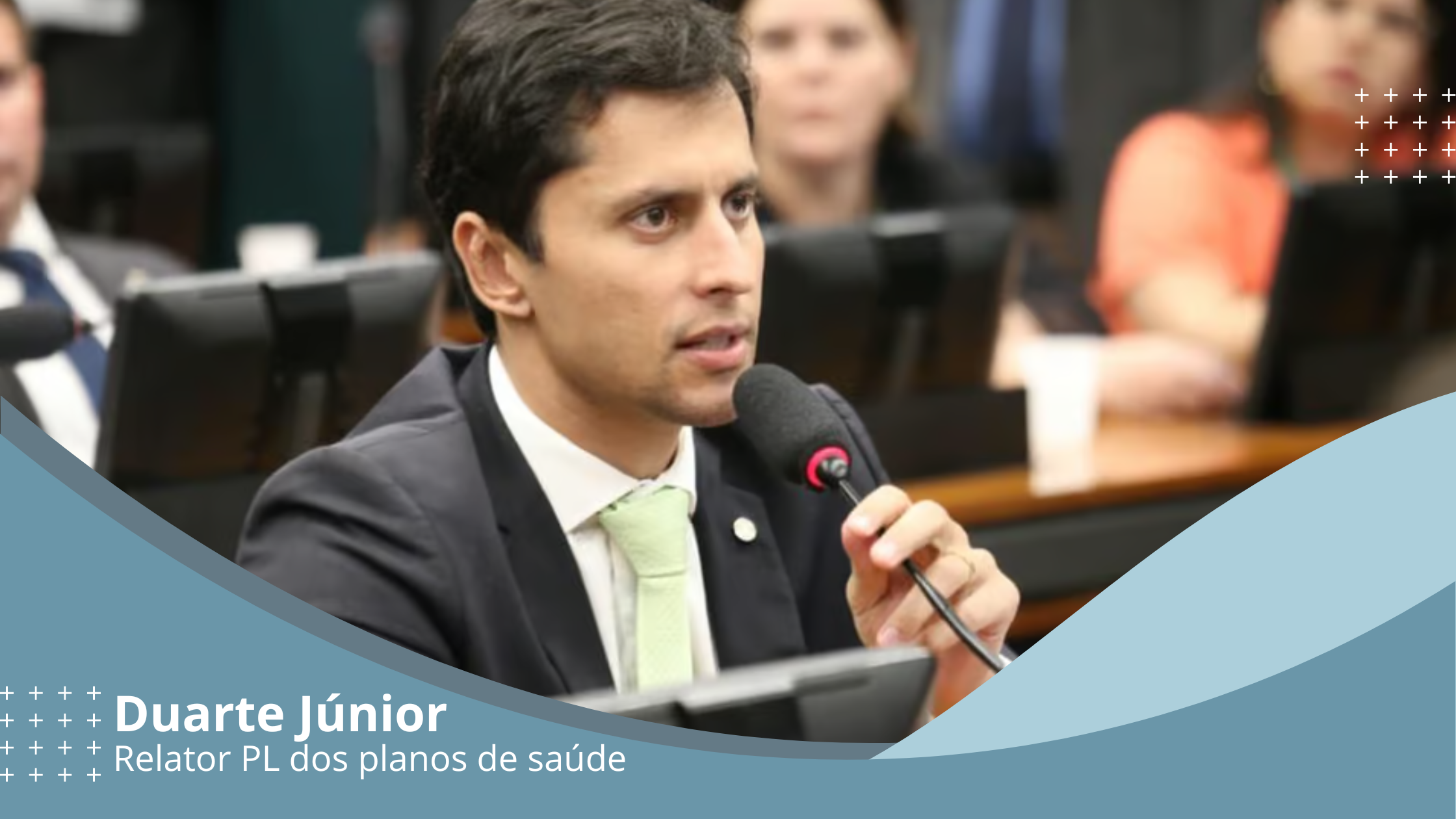 The discussion about the health plan PL, a major reform in the law that regulates the supplementary health sector, intensified in the first half of the year.
The discussion about the health plan PL, a major reform in the law that regulates the supplementary health sector, intensified in the first half of the year.
Among the main topics are the readjustment limit in collective plans, defining whether the National Supplementary Health Agency (ANS) will carry out the calculation and annual adjustment of business and collective plans – as occurs with individual and family plans –, as well as preventing unilateral termination in this same category. Agendas that brought a lot of repercussion among actors in the supplementary health chain.
Understand the PL of health plans
Appointed by the president of the Chamber of Deputies, Arthur Lira, Duarte Júnior (PSB-MA) assumed the rapporteurship of the Health Plans Bill in May. The health plan PL rapporteur (7419/2006) stated that the vote in the chamber should take place by the beginning of September.
 The project has been in progress in the House for 17 years and brings together 276 proposals. According to the parliamentarian, it has never progressed as quickly as it is now: “The report is completed and only depends on a meeting with Arthur Lira. We had a lot of dialogue with the government, but I believe that in September we will be able to discuss and approve the project in the Chamber”.
The project has been in progress in the House for 17 years and brings together 276 proposals. According to the parliamentarian, it has never progressed as quickly as it is now: “The report is completed and only depends on a meeting with Arthur Lira. We had a lot of dialogue with the government, but I believe that in September we will be able to discuss and approve the project in the Chamber”.
The deputy reported that public hearings were held in all locations in Brazil, with debates and meetings in the cabinet, which allowed the project to move forward with contributions from bodies, entities, consumer protection, health plan operators and service providers .
Among the agendas that have been advanced, according to the deputy, are the regulation of collective plans, favoring the adjustment limit for this modality to provide more transparency to the consumer.
Furthermore, the possibility of monitoring self-management plans by consumer protection bodies, the clear prohibition and prohibition of unilateral termination of the contract.
“Termination of the contract for individual plans is not permitted and we will move forward so that the same happens in collective plans”, states the deputy. “I have done everything to harmonize these interests, balance relationships and provide sustainability to the sector to guarantee a decent service to the consumer. It's not fair that he pays dearly and, when he needs it, finds himself lost. It needs to work, so when he hires him, it’s worth it.”
See the main points proposed by the PL rapporteur for health plans:
- Prohibit unilateral termination of contracts and limit adjustments to collective health plans;
- Include punishment for operators who illegally deny exams;
- Allow ANS to inspect service providers.
Without creating a working group
In the interview with the Futuro da Saúde portal, Duarte Junior reinforced that there will not be the formation of a working group to expand the debate on the subject, as was the case for the approval of the new minimum salary for nursing: “Subgroups have already been created and it has gone through all the committees in the house. There is no need to create a subgroup to discuss what has already been discussed. What we need is to approve the project that has been in progress for almost two decades in the House.”
 Several service providers, health plans and the consumer protection agency were contacted by the parliamentarian. According to him, the conversation advanced in several aspects and the providers understood that it could be harmful.
Several service providers, health plans and the consumer protection agency were contacted by the parliamentarian. According to him, the conversation advanced in several aspects and the providers understood that it could be harmful.
According to Duarte Junior, former president of Procon in Maranhão, the approved project improves sustainability and supervision to guarantee transparency and balance in health plans.
One way or another, the health plan PL must have an impact on health as a whole in the country. Although the vast majority of Brazilians depend on the Unified Health System (SUS), 50.8 million are users of supplementary health, as shown in the latest report released by the National Supplementary Health Agency (ANS), at the beginning of August.
If approved in the Chamber, the PL will then go to the Senate, to later be sanctioned by President Luiz Inácio Lula da Silva. All these procedures, according to the parliamentarian, could take place this year.
Use technology to benefit your healthcare provider!
The best way to ensure that your healthcare provider adapts to changes without generating problems in your operation as a whole, especially in the management of care costs, is to have implemented a good medical audit system. Being able to always be adapted to the most different requirements of the sector, it is undoubtedly the best solution for your medical bill analysis and management team to avoid errors that turn into losses.
If you are an auditor or medical account analyst and/or manager of health plan operators, Get to know SAUDI right now, a system that makes it possible to increase the capacity for technical analysis of requests, through access to support information in real time, optimizing the speed of analysis, registration and processing of authorizations.
O SAUDI system reduces the risk of delays in responding to requests, avoiding complaints from beneficiaries, through better workflow control, through the possibility of determining a response deadline for granting authorization or reasoned denial as per TISS standard.
With SAUDI all management of medical bills and healthcare costs becomes much easier, in addition to allowing your health care provider to always comply with the Legal and Governmental requirements of the health plan sector and that the performance of the your work be recognized for the efficiency, agility and transparency of processes.
If you liked this content, subscribe to our newsletter and follow our social networks to have access to more useful information. We are present in Facebook, Linkedin It is Instagram.
Photo Duarte Junior: Billy Boss/Chamber of Deputies.
Source: Future Health Portal.










